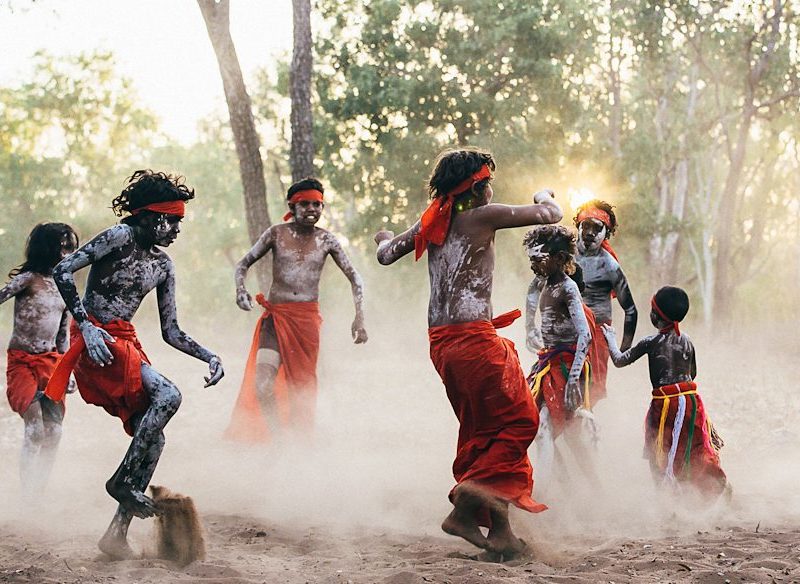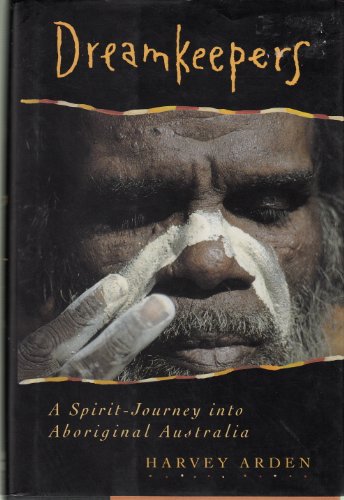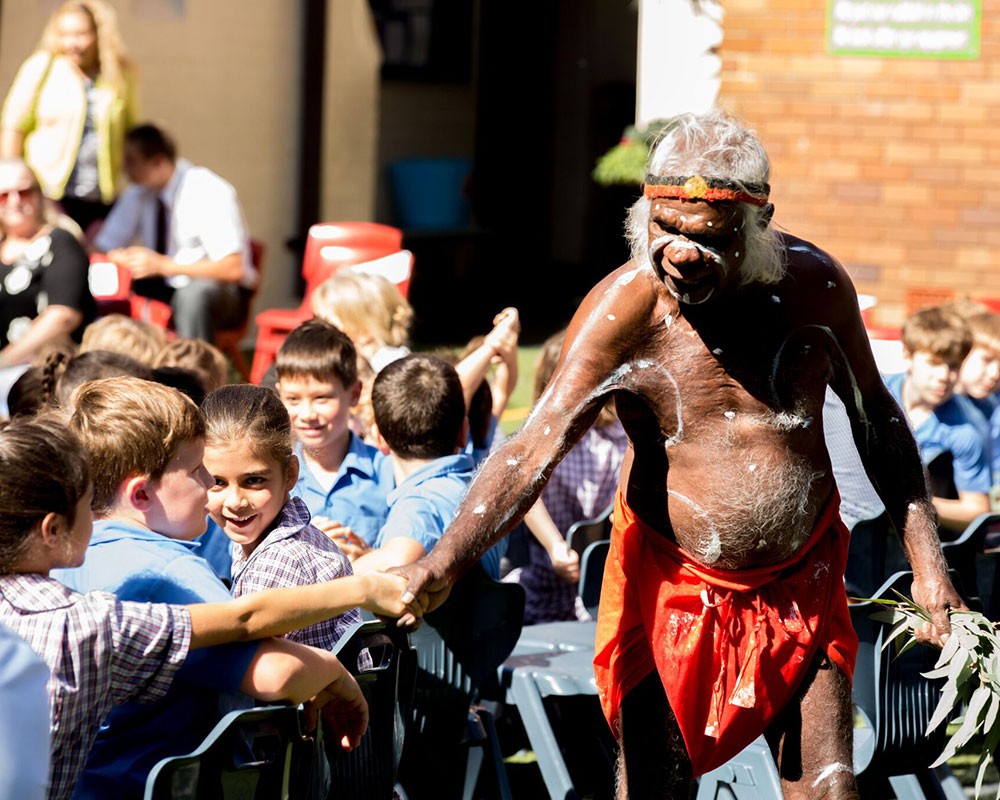The Enduring Spirit: A Journey into the World of Indigenous Australians
The Enduring Spirit: A Journey into the World of Indigenous Australians

The vast and ancient land of Australia holds within its heart a rich tapestry of Indigenous culture, a legacy spanning tens of thousands of years. These are the stories of the First Australians, the Aboriginal and Torres Strait Islander peoples, whose connection to the land is as deep as the roots of the oldest trees. This article aims to delve into their history, traditions, challenges, and the ongoing fight for recognition and reconciliation.
The First Australians: A History of Resilience
Related Articles: The Enduring Spirit: A Journey into the World of Indigenous Australians
- The Didgeridoo: A Journey Through Sound And Culture
- A Tapestry Of Cultures: Exploring The Diverse Tribes And Languages Of Western Australia
- A Taste Of Paradise: Unveiling The Delectable World Of Australian Tropical Fruits
- A Tapestry Of Tongues: How Australia’s Linguistic Landscape Reflects Its Diverse History
- Unveiling The Rich Tapestry Of Aboriginal Culture: A Journey Through History, Identity, And Resilience
For over 65,000 years, Aboriginal and Torres Strait Islander peoples have lived and thrived across Australia, developing unique cultures and languages that are deeply intertwined with the land. Their stories are etched into the landscape, whispered in the wind, and carried in the songs of their ancestors.
Prior to European colonization, Aboriginal Australia was a mosaic of diverse cultures, each with its own distinct traditions, languages, and ways of life. From the vast desert landscapes of the Western Desert to the lush rainforests of the Northern Territory, each region held a unique story.
The Impact of Colonization
The arrival of European settlers in 1770 marked a turning point in the history of Indigenous Australians. The concept of "terra nullius" – a land belonging to no one – was used to justify the dispossession of Indigenous peoples from their land and the subsequent establishment of British colonies.
The impact of colonization was devastating. Indigenous Australians were forced from their ancestral lands, their languages suppressed, and their traditional practices outlawed. The Stolen Generations, a period where Aboriginal children were forcibly removed from their families and placed in government institutions, stands as a stark reminder of the deep wounds inflicted by colonization.
The Struggle for Recognition and Reconciliation
Despite the hardships faced, Indigenous Australians have shown remarkable resilience and determination. The fight for recognition and reconciliation has been a long and arduous journey, marked by periods of activism, political struggle, and cultural revival.
In 1967, a referendum granted Indigenous Australians the right to be counted in the census and gave the Commonwealth government the power to legislate for them. This was a significant step towards recognition, but it was only the beginning.

The 1992 Mabo decision, which overturned the doctrine of terra nullius, recognized Indigenous land rights and paved the way for native title claims. This landmark decision marked a turning point in the struggle for justice and recognition.
Cultural Expression and Resilience
Despite the challenges they have faced, Indigenous Australians have managed to preserve and revitalize their rich cultural heritage. From traditional art and storytelling to dance and music, Indigenous culture is a vibrant expression of their deep connection to the land and their resilience as a people.
The Importance of Reconciliation
Reconciliation is a complex and multifaceted process that requires acknowledging the injustices of the past, fostering understanding, and building a future where Indigenous Australians are fully respected and included in Australian society.

It is about recognizing the ongoing impact of colonization, addressing the systemic inequalities that persist, and working towards a shared future where the voices and perspectives of Indigenous Australians are valued and heard.
The Role of Education
Education plays a vital role in promoting reconciliation and understanding. By learning about Indigenous history, culture, and contemporary issues, Australians can gain a deeper appreciation for the contributions of Indigenous Australians and their ongoing fight for justice.
The Future of Indigenous Australia
The future of Indigenous Australia is bright with hope and possibility. With the continued fight for recognition, reconciliation, and self-determination, Indigenous Australians are shaping a future where their culture, traditions, and voices are celebrated and honored.

FAQs about Indigenous Australians
Q: What is the difference between Aboriginal and Torres Strait Islander peoples?
A: Aboriginal peoples are the Indigenous peoples of mainland Australia, while Torres Strait Islander peoples are the Indigenous peoples of the Torres Strait Islands, located between Australia and Papua New Guinea. Both groups have distinct cultures, languages, and traditions.
Q: What are some of the challenges faced by Indigenous Australians today?
A: Indigenous Australians continue to face significant challenges, including:
- Discrimination and racism: Indigenous Australians are disproportionately affected by racism and discrimination in areas such as employment, education, and healthcare.
- Health disparities: Indigenous Australians have significantly poorer health outcomes than non-Indigenous Australians, due to factors such as poverty, lack of access to healthcare, and historical trauma.
- High rates of incarceration: Indigenous Australians are vastly overrepresented in the prison system, reflecting systemic biases and the ongoing impact of colonization.
- Loss of language and culture: Many Indigenous languages are endangered, and the loss of cultural knowledge is a major concern.
Q: How can I support Indigenous Australians?
A: There are many ways to support Indigenous Australians:
- Educate yourself: Learn about Indigenous history, culture, and contemporary issues.
- Support Indigenous businesses and organizations.
- Advocate for Indigenous rights and reconciliation.
- Respect Indigenous cultural protocols and traditions.
- Engage in respectful dialogue and listen to Indigenous voices.
Q: What are some resources for learning more about Indigenous Australians?
A: Here are some resources for learning more about Indigenous Australians:
- National Museum of Australia: https://www.nma.gov.au/
- Australian Institute of Aboriginal and Torres Strait Islander Studies: https://aiatsis.gov.au/
- Reconciliation Australia: https://www.reconciliation.org.au/
- IndigenousX: https://indigenousx.com.au/
Conclusion
The story of Indigenous Australians is a testament to the enduring spirit of a people who have faced countless challenges yet have managed to preserve their rich cultural heritage and continue to fight for justice and recognition. By understanding their history, traditions, and ongoing struggles, we can work towards a future where the voices of Indigenous Australians are heard, their rights are respected, and their cultures are celebrated.

Closure
Thus, we hope this article has provided valuable insights into The Enduring Spirit: A Journey into the World of Indigenous Australians. We hope you find this article informative and beneficial. See you in our next article!


